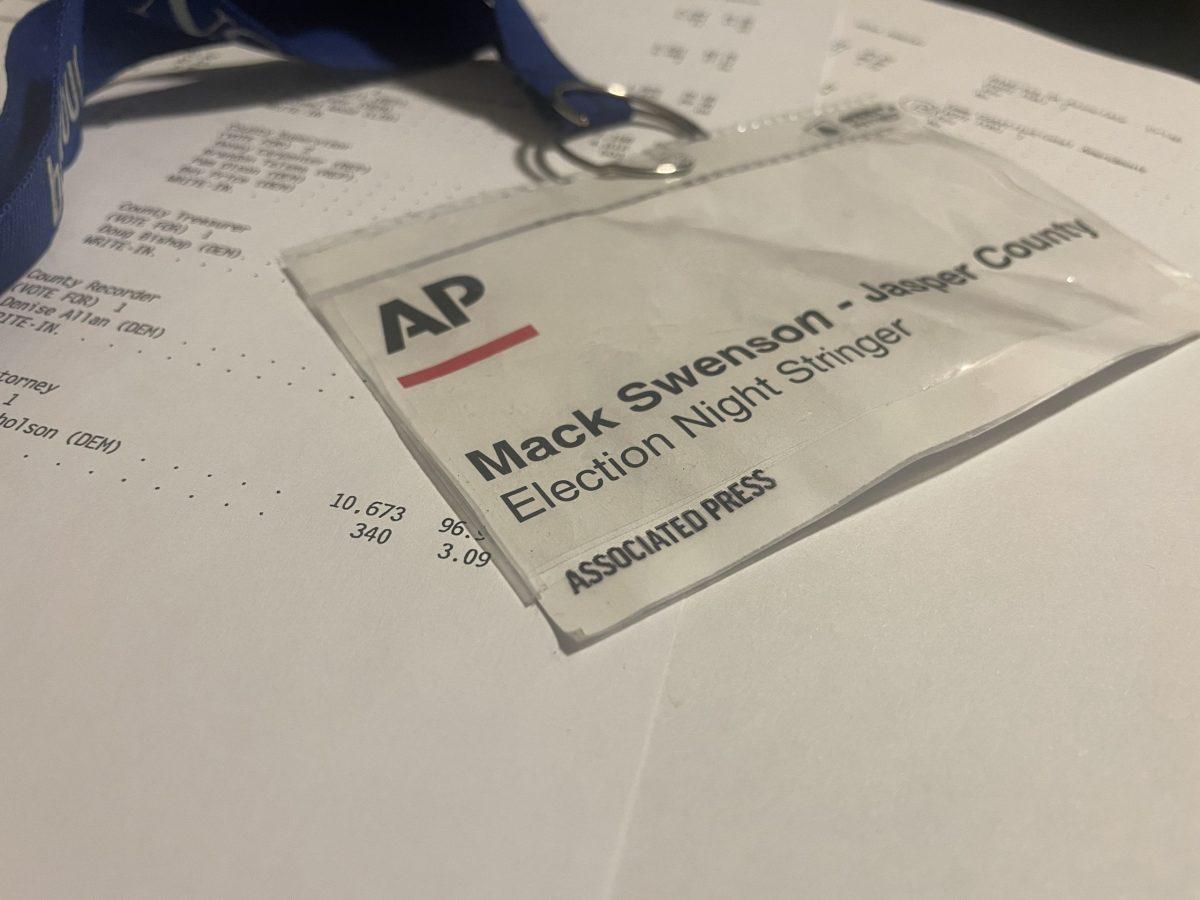While voters cast some of the final ballots of Election Day, I mounted my bike and pedaled from the Drake University neighborhood to a senior center in West Des Moines. This was part of my role in the Associated Press’s work on election night.
At the senior center, I met the poll workers and was told how hundreds of voters had cast their ballots in the races for Iowa governor and senator. I called the AP and reported these totals, essentially completing my role in the process.
According to the AP, the U.S. doesn’t have a government agency that reports election results to the nation right away, while the news organization has been figuring out which candidates have won their races since 1848. The Associated Press’s temporary army of about 4,000 freelancers report vote totals at the local level to vote entry centers, the AP reported on Nov. 2. Clerks then enter the results into the AP’s election database.
“AP plays a unique and crucial role in the elections because we declare winners,” AP Washington Bureau Chief Anna Johnson said in a Q&A published by the AP on Oct. 18. “This year, we will call more than 7,000 races, from Senate and House races to gubernatorial contests and statewide races ranging from secretary of state to attorney general and more.”
The news organization says it doesn’t declare a winner “until it’s certain the candidate who’s ahead in the count can’t be caught.”
Sometimes, they can use the results of the AP VoteCast survey to confirm a win, the AP says. For example, this works in a race where “a party or candidate has a past history of consistent and convincing wins.”
“The results from the poll — along with our analysis of early voting and other statistics — confirm our expectation that longstanding political trends in these states will hold,” AP senior editor David Scott told the AP.
Johnson said there would be a “huge emphasis this year” on election administration.
“AP will produce stories on how races are run in various places and the role of election administrators at the state and local levels,” Johnson said. “There will also be an emphasis on coverage of candidates that have the potential to impact how elections are run if elected, particularly secretary of state offices.”
Citizens can play various roles on election night: poll workers, journalists, and of course, voters. Ben Rowray, 22, said he didn’t vote. He didn’t have proof of residency with him. When he tried to pull up a bank statement on his phone, his phone died.
Rowray said he thinks his vote probably won’t affect the election but that voting is important. He said if everyone didn’t vote, “somebody could get put into office that doesn’t reflect maybe how our city, or how our state, or even how our country feels about something.”
Drake University student Anya Zarembski works as a data intern at the National Democratic Training Committee, a political action committee. She monitored elections in Georgia for her job.
Zarembski’s task was to see “if our candidates, people we trained, won or lost.”
Zarembski also kept an eye on races in her hometown. She said especially for local races, voting matters a lot. Especially in her hometown, education funding is a big issue.
“A lot of people here will ask me to vote in Iowa, obviously, because it’s more competitive state races, right?” said Zarembski, who voted absentee in Illinois. “But, I plan on moving back to my hometown area. So I want to vote there because my hometown is a pretty competitive area, and I care about what happens there.”







